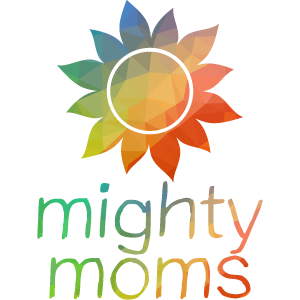How Social Bonds Influence our Overall Well-Being

Guest article provided by: watermelonjoy.com
In our fast-paced, digitally driven world, the importance of social connections often takes a backseat to other priorities. However, research consistently highlights the profound impact that social interactions have on our emotions, physical health, and overall well-being. This blog delves into the extensive body of scientific evidence supporting the notion that fostering meaningful social connections is not just a luxury but a critical component of a healthy and fulfilling life.
The Emotional Connection
Emotional Support as a Pillar of Mental Well-being
Our social circles act as a safety net for our emotions, providing a cushion of understanding, empathy, and shared experiences. Whether it’s a close friend offering a listening ear or a family member providing unconditional support, these connections create a nurturing environment that is instrumental in maintaining good mental health. Renowned psychiatrist Dr. John Cacioppo highlights in his work how loneliness, often born from a lack of social connection, can be a silent instigator of mental health issues such as depression and anxiety (Cacioppo & Patrick, 2008).
Stress Reduction through Connection
The hustle and bustle of our daily lives often subject us to a barrage of stressors. However, having a robust social support system can act as a powerful stress buffer. The American Psychological Association (APA) underscores the stress-alleviating benefits of social connections, emphasizing how the mere presence of a trusted friend can trigger the release of oxytocin, a hormone that counteracts the stress hormone cortisol (APA, n.d.). This physiological response highlights the innate connection between our social bonds and our ability to navigate stress with greater resilience.
A Network of Understanding
When facing challenges, having individuals who genuinely understand and empathize with our struggles can make a world of difference. Sharing our burdens within a supportive network not only lightens the emotional load but also provides varied perspectives and coping mechanisms. This network becomes a vital tool in managing stress, offering diverse insights that contribute to our mental resilience.
The Role of Positive Social Interaction
Positive social interactions, whether through face-to-face encounters or digital connections, play a crucial role in maintaining mental health. Engaging in activities with friends, expressing oneself within a social context, and fostering a sense of belonging contribute to a positive feedback loop that reinforces our mental well-being.
The Physical Dimension
Cardiovascular Harmony
Our hearts beat not only in response to emotions but also in sync with the quality of our social connections. Dr. Julianne Holt-Lunstad’s groundbreaking meta-analysis, involving millions of participants, revealed a striking correlation between social isolation and an increased risk of cardiovascular diseases (Holt-Lunstad et al., 2015). On the flip side, strong social ties contribute to lower blood pressure and overall heart health. The rhythmic dance of our cardiovascular system is, in many ways, orchestrated by the harmony of our social bonds.
Immune System Resilience
Dr. Sheldon Cohen’s research illuminates the robust relationship between social connections and immune system strength. His work demonstrated that individuals with flourishing social networks exhibit heightened immunity, making them less susceptible to infections and facilitating quicker recovery when health challenges arise (Cohen et al., 1997). The immune system, it seems, thrives in the presence of supportive social connections, acting as a shield against the adversities of the physical world.
Pain Alleviation
Recent studies have delved into the intriguing connection between social bonds and pain perception. Engaging in positive social interactions has been shown to trigger the release of endorphins, our body’s natural painkillers, providing a tangible link between our social lives and our physical well-being (Master et al., 2009). This suggests that the warmth of human connection not only soothes emotional pain but may also offer a form of relief for physical discomfort.
Overall Well-being
Longevity
In her captivating exploration within the pages of “The Village Effect: How Face-to-Face Contact Can Make Us Healthier and Happier,” Dr. Susan Pinker uncovers the enigmatic phenomenon of “blue zones.” These are pockets of the world where an unusually high number of individuals surpass the centenarian milestone. Pinker’s insightful perspective attributes this remarkable longevity not merely to lifestyle choices but significantly to the profound influence of robust social connections and active community engagement (Pinker, 2014).
The concept of “blue zones” challenges the notion that genetics alone dictate our lifespan. Instead, Pinker delves into the communal and social fabric of these areas, revealing a potent recipe for a longer, healthier life. These regions are characterized by a strong sense of community, where face-to-face interactions and genuine connections are not just a cultural norm but an integral part of daily life. The implication is clear: the quality of our social bonds, the depth of our relationships, and our active participation in community life can significantly contribute to a life that transcends the ordinary lifespan.
In parallel, the research findings of Dr. Julianne Holt-Lunstad further emphasize the gravity of social connections in the quest for longevity. Holt-Lunstad’s work draws a stark comparison, highlighting that the absence of robust social bonds can be as detrimental to health as smoking a staggering 15 cigarettes a day (Holt-Lunstad, 2017). This comparison underscores the magnitude of the impact social connections can have on our physical well-being, reinforcing the idea that cultivating and nurturing these bonds is not just a lifestyle choice but a profound investment in our longevity.
Enhanced Life Satisfaction
Beyond the metric of mere existence, our pursuit of well-being intertwines with the fabric of life satisfaction. The World Happiness Report, an annual testament to the collective joy of nations, consistently underscores the pivotal role of social support in elevating overall life satisfaction (Helliwell et al., 2020). Countries with strong social support systems consistently secure higher positions in the global happiness rankings, echoing the sentiment that our happiness is intricately tied to the quality of our social connections.
The report emphasizes that the quality, depth, and authenticity of our social bonds play a significant role in determining our happiness quotient. It’s not just about having a vast network but about the meaningful connections that bring joy and support into our lives. The global perspective offered by the World Happiness Report aligns with the universal truth that fostering social connections is not just a side note to our well-being but a fundamental aspect that contributes to an enhanced and fulfilling life.
In essence, the exploration of overall well-being reveals that the tapestry of a long and satisfying life is intricately woven with the threads of meaningful social connections. Whether it’s the communal spirit of “blue zones” or the global pursuit of happiness, the common thread is clear – our relationships, interactions, and sense of community are indispensable elements in the grand symphony of well-being.
Tips on How to Cultivate Meaningful Relationships
Here are some key takeaways and practical tips for readers to incorporate into their lives:
1. Prioritize Quality Over Quantity:
It’s not just about the number of connections but the depth and quality of those connections. Investing time and effort in building a few meaningful relationships can be more beneficial than a multitude of superficial ones.
2. Embrace Face-to-Face Interaction:
In the era of digital communication, face-to-face interactions often take a backseat. However, Dr. Susan Pinker’s research emphasizes the unique benefits of in-person contact. Make an effort to engage in activities that facilitate face-to-face communication, fostering a deeper sense of connection.
3. Actively Engage in Communities:
Whether it’s a local club, religious group, or an online community centered around shared interests, actively participating in a community provides a sense of belonging and support. As Dr. Pinker discovered in her exploration of “blue zones,” community engagement contributes significantly to longevity and well-being.
4. Cultivate Social Support Networks:
Dr. John Cacioppo’s work emphasizes the role of social support in mitigating mental health issues. Actively cultivate networks of friends, family, and colleagues who provide emotional support during challenging times.
5. Integrate Social Activities into Daily Life:
Instead of viewing social interactions as optional, consider them as essential components of your daily routine. This could include regular phone calls, coffee dates, or shared activities that strengthen bonds and provide opportunities for genuine connection.
6. Practice Active Listening:
Meaningful connections are built on understanding and empathy. Practice active listening in your interactions, demonstrating genuine interest in the thoughts and feelings of those around you. This fosters deeper connections and a sense of being valued.
7. Invest in Self-Care:
Recognize the importance of self-care in maintaining healthy relationships. Taking care of your physical and mental well-being enables you to contribute positively to your social circles. Remember the adage: “You can’t pour from an empty cup.”
8. Celebrate Shared Moments:
Whether big milestones or simple everyday victories, celebrating shared moments strengthens the bonds within your social circles. Acknowledge and appreciate the positive aspects of your relationships, fostering a positive environment.
As we juggle the craziness of our busy lives, it’s crucial not to shrug off the magic of social connections. The cool stuff we talked about in this blog really drives home how awesome it is to build those meaningful relationships. When we put some effort into caring about our social well-being, it’s not just good for our feelings and health, but it adds a ton of joy to our lives. So, as we keep trucking along, let’s soak up the goodness that comes from hanging out with our people and try to squeeze more of those awesome connections into our everyday routines. Cheers to making life a bit more awesome, one social bond at a time!
For additional blogs like this, please go to https://watermelonjoy.com/
Author: Leslie Hemedes @ https://watermelonjoy.com/
Photo by: pexels.com
